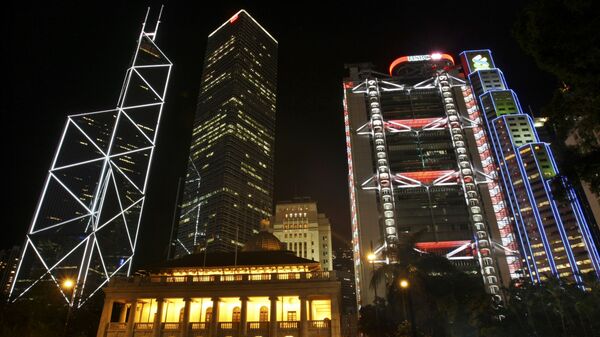Analysts believe that loosening listing rules for biotech companies has helped boost Hong Kong stocks by allowing startups to list their shares before posting revenues, a report from KPMG China revealed.
KPMG China manager in Hong Kong, Hoshiyuki Takahashi, said that Hong Kong aimed to “increase innovative companies that float on their market”, as well as strengthening the city-state's position as a finance hub compared to powerhouses such as Shenzhen or the US.
"With this deregulation toward biotech firms, Hong Kong wants to attract companies with more technical prowess," Mr Takahashi said.
E-commerce giant Alibaba Group Holding will launch a secondary listing in Hong Kong to encourage other companies to join the SAR's stock market.
Hong Kong should also remain a key IPO market in the second half of 2019, analysts say, with Ernst & Young forecasting a stable market as China implements shares from mainland companies listed in Hong Kong open to purchase from any nation, known as ‘H shares’, adding that doing so would be “conductive to attracting mainland enterprises to go public in Hong Kong”.
The news comes despite Beijing introducing a bill allowing the extradition of suspects from Hong Kong to mainland China, with millions protesting the proposed law. But analysts stated that this has not affected Hong Kong’s markets and the US trade war against China has made little impact on business in the city.
"The effect of the intensified relationship between Washington and Beijing also has yet to cause any major blows," KPMG Asia’s listing advisory group director in Hong Kong, Toshihiro Kawamura, said, adding that potential companies seeking Hong Kong IPOs “remains high, at around 190”.
Mainland China has also launched its technology innovation board, rivalling the US Nasdaq exchange, to boost its appeal to mainland companies and help domestic tech firms with investments amid growing trade rivalries with the US over technology.
Protests have rocked Hong Kong as the city suspended the extradition bill indefinitely and Hong Kong CEO Carrie Lam issued a public apology, but protestors are demanding a full withdrawal of the amendments and attempted unsuccessfully to storm the city's parliament building at 11:20 GMT on Sunday.
China has restated that Hong Kong issues were a matter of China’s domestic policy and urged external forces not to interfere. Hong Kong is a special administrative region of China, which reunited with the mainland in 1997 via Beijing’s “one country, two systems” principle, allowing the city to operate autonomously from the rest of China.


